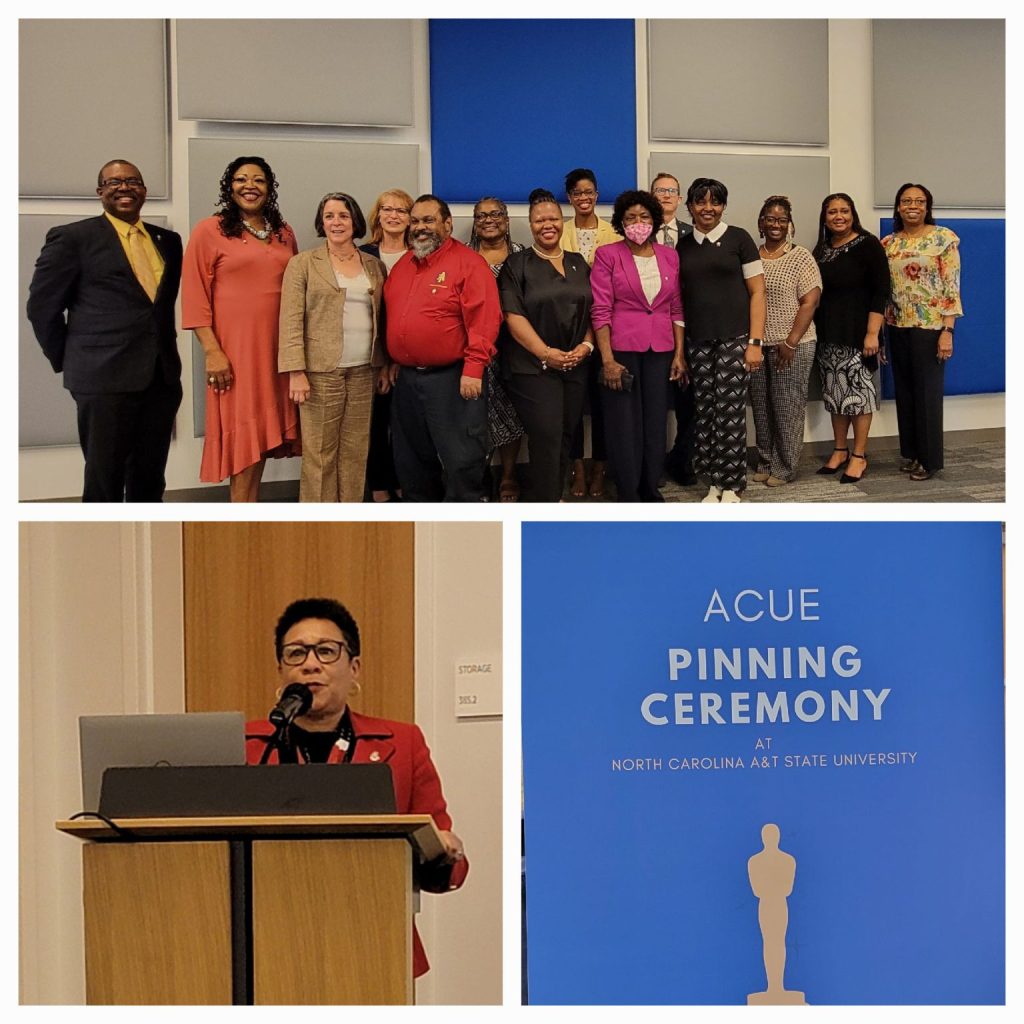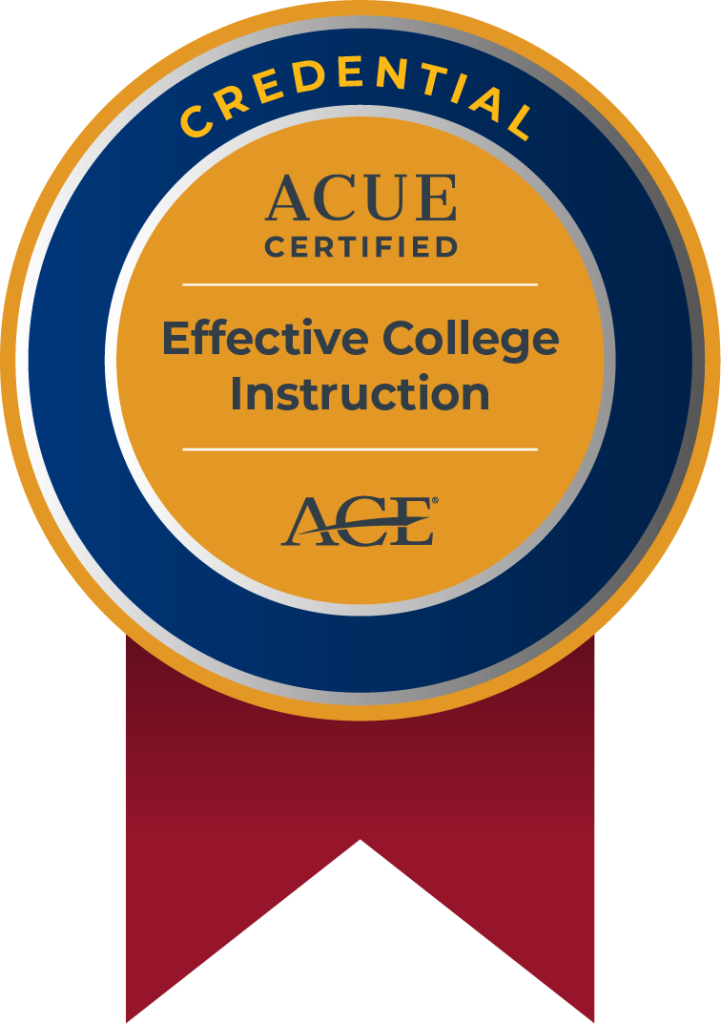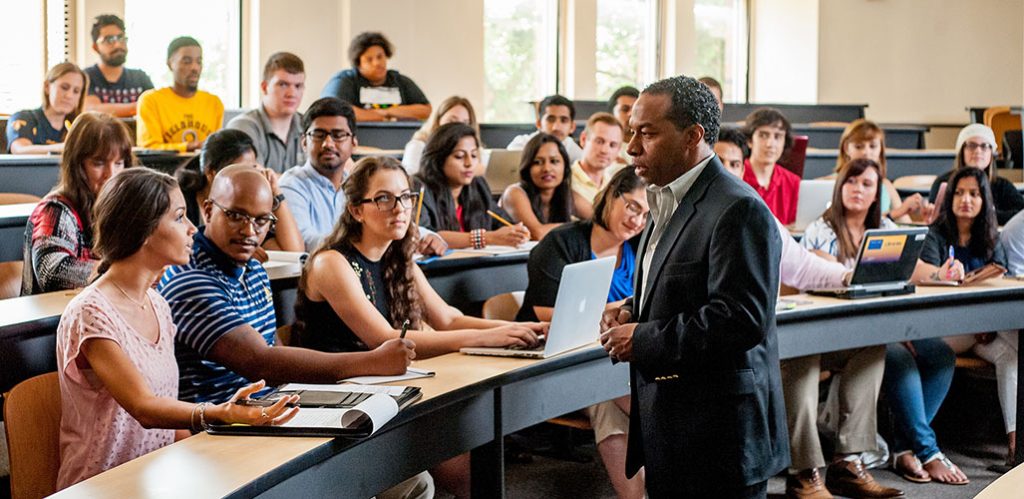ACUE Pinning: ‘On cloud nine’ at North Carolina Agricultural and Technical State University

In this essay, Barbara Rodriguez, Ph.D. shares reflections on ACUE’s partnership with North Carolina A&T University and insights from attending this month’s ACUE Pinning Ceremony. I’m still on cloud nine after attending North Carolina A&T University’s pinning ceremony to recognize and celebrate faculty who earned ACUE Certificates in Effective College Instruction. In addition to being […]
New Look, Same ‘Standard of Excellence’: What My ACUE Pin Means to Me

By Cindy Blackwell I love my ACUE pin. Now, I realize that using the word “love” for a pin may seem a bit overblown, but given all my ACUE pin connects me to, love is a completely appropriate term. My ACUE pin is a connection to my commitment to teaching and student success. It […]
Faculty Are the Essence of the Institution
Why Texas A&M University System Is Taking Inclusive Teaching to Scale
Why Texas A&M University System is Taking Inclusive Teaching to Scale

“Effective teaching is inclusive teaching,” said Penny MacCormack, ACUE’s Chief Academic Officer, in her opening remarks at Texas A&M University System’s (TAMUS) DEI Summit in early April. ACUE’s microcredential, Inclusive Teaching for Equitable Learning, was a central topic of discussion at the summit. The session underscored TAMUS’ deepening investment in quality teaching systemwide through its […]
CUNY and ACUE Pen Op-ed on Power of Effective Teaching
More Colleges Are Preparing Faculty in Evidence-based Instruction
5 Studying Strategies to Help Students Learn More

For Ryan McPherson, an associate professor of practice at the University of Texas at San Antonio, the ACUE course taught him a lot about what works in terms of teaching and learning. But it was learning about what doesn’t work, especially when it comes to studying, that resonated with him. “Things we know don’t work […]
“Join Us in This Movement”
Why Bennett College, an HBCU for Women, is All In on Quality Teaching

ACUE Certified Faculty at Bennett College, an HBCU for women, Are Empowering the Next Generation of Women Leaders At Bennett College, a historically black liberal arts college (HBCU) for women, recognizing the crucial role of faculty in student success is a critical component of the institution’s new strategic direction. As the college’s leaders developed a […]
